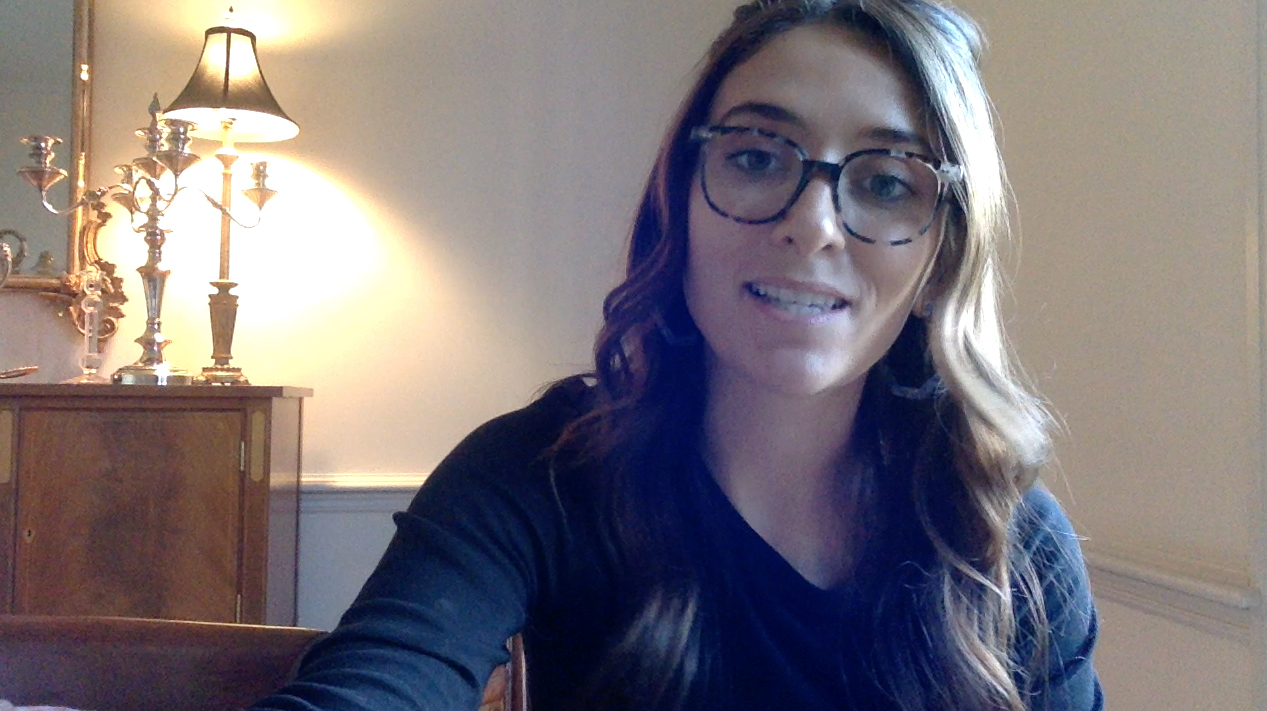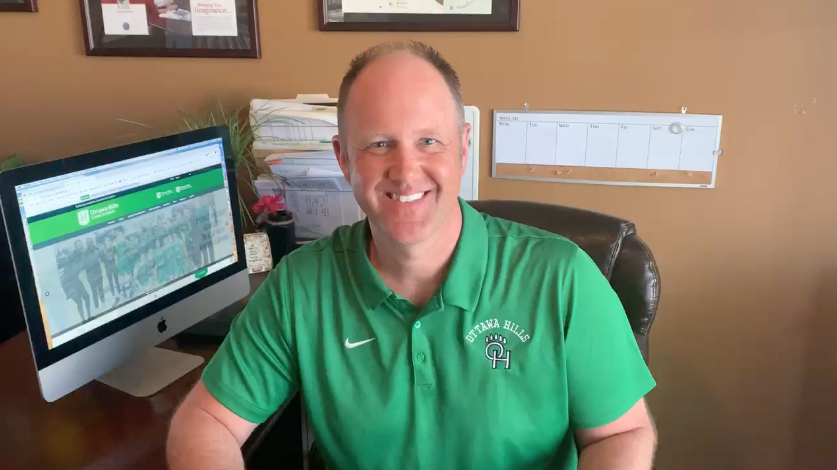During the recent transition to remote learning for the world’s schoolchildren, the resourcefulness and resilience of teachers has been on full display.
As parents and other caregivers have taken on the role of at-home teacher during the COVID-19 pandemic, alumni of The University of Toledo Judith Herb College of Education have turned to technology to share tools, techniques and best practices to help students finish the school year strong.
The college is sharing the advice of its alumni through a Teacher Chronicles series on its Facebook page.
“At first, it was slightly overwhelming, because I teach three sections of a project-based anatomy class,” said Lauren Ovalle, who received a bachelor’s degree in adolescent and young adult education in 2018 and is a life sciences teacher at Christ Presbyterian Academy in Nashville, Tenn.

Lauren Ovalle, who received a bachelor’s degree in adolescent and young adult education from UToledo and is a life sciences teacher at Christ Presbyterian Academy in Nashville, Tenn., says it is important to remember that remote learning is “uncharted territory for everyone involved.”
“What I keep reminding myself is that this is uncharted territory for everyone involved: students, teachers, parents and administrators. If I can go into every session positive, and send my students and their parents positive communication, that will only make this experience more enjoyable for all of us.”
Flexibility is key as teachers adjust lesson planning, grading and basic communication. Videoconferencing tools offered by Zoom and Google, as well as old-fashioned planning and expectation-setting, are helping navigate these unprecedented times of learning from home for both teachers and students.
“I like to tell them at the beginning of the week what to expect from me,” said Patrice Brock, who graduated from UToledo’s Licensure and Master’s Program in adolescent and young adult education in 2013 and is a science teacher at Central Catholic High School in Toledo. “While we’re posting to several classes ourselves, they’re receiving posts from six to seven classes. It’s new to all of us, so as much framework and structure as we can give them will be helpful.”
Kaitlyn Bergman, a 2018 alumna with a bachelor’s degree in adolescent and young adult education and math teacher at Central Catholic, echoes that predictability helps to recreate the rhythm and pace of a normal school day as much as possible.
“Something that’s worked well for my students is giving them a weekly calendar,” Bergman said. “I’ve had students tell me that it’s more like what we do every day in class.”
Just as important as the lessons and curriculum, however, is the need to maintain a personal connection with students.

Adam Fineske, a two-time UToledo alumnus with a bachelor’s degree in education and master’s degree in educational leadership and administration in 2004, is superintendent for Ottawa Hills Local Schools and advises teachers to be flexible. “We’re focusing more on connectedness versus content.”
“This is what teaching is all about,” said Adam Fineske, who received a bachelor’s degree in education in 2000 and a master’s degree in educational leadership and administration in 2004, both from UToledo.
He is superintendent for Ottawa Hills Local Schools, blocks from the University’s Main Campus. “When you put lessons together, they’re not always going to be perfect, and you’re going to have to make some changes, adjustments, and really do what’s best for your kids.”
“We’re focusing more on connectedness versus content.”
One positive takeaway from the coronavirus pandemic taking place in an age of digital living and interactive media? It’s still possible to see your students’ faces.
“I’m very thankful we have these capabilities, so we can still see our students during this time,” said Cara Johnson, a UToledo alumna with a 2011 special education intervention specialist bachelor’s degree who is a special education teacher at Fassett Junior High in Oregon, Ohio. “That’s the one thing I’m really missing.”